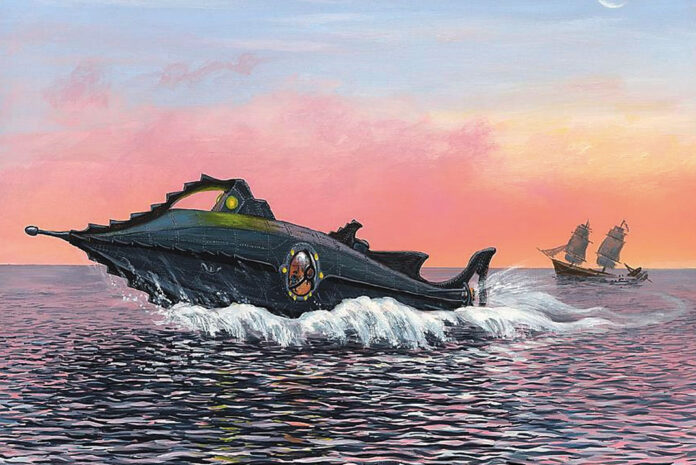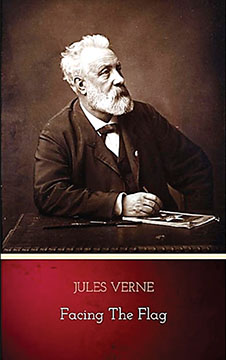by Edward Ellis, Special Correspondent
Some readers are aware of the tortured history of New Bern’s spelling. Over the years, it’s been one word, hyphenated, and styled with an extra “e.” But did you know it once sported a “u”?
French novelist, playwright, and poet Jules Verne featured Newburn, N.C. in his 1896 patriotic novel called Face Au Drapeau, or Facing the Flag. In the book, a mad scientist named Thomas Roch is held in a swanky insane asylum in New Bern until he’s kidnapped via a submarine that traverses the Neuse River to spirit him away.
Facing the Flag never got the traction of Verne’s other blockbusters like 20,000 Leagues Under the Sea and A Journey to the Center of the Earth but it’s a rip-snorting read in its own right. It was quite popular in France in its day due to political strife then plaguing the western European nation.
Verne (1828-1905) was an international bestselling author. A phenomenal success as a writer, he is considered one of the “fathers” of science fiction. Some of his other famous works include The Mysterious Island and Around the World in 80 Days. Today, he’s among the most translated authors in the world, ranking at the top of the list with Agatha Christie and William Shakespeare.
In Facing the Flag, the protagonist is a crazed genius who invents the “Fulgurator,” an enormously powerful bomb mounted on a rocket similar to a modern nuclear ICBM. Imprisoned in the “Newburn” looney bin by the U.S. government, Roch is snatched by the mysterious “Count d’Artigas,” actually a renowned pirate whose crew is made up of “escaped convicts, military and naval deserters, and the scum of Europe.” The count wants the Fulgurator to defend his piratical headquarters in a cave on the island of Bermuda.
Verne never visited New Bern, of course. Perhaps he plucked its location off a map. Whatever the case, he didn’t take into account that the shallow waters of the Neuse River would never accommodate a submarine. Then again, such a fine detail hardly mattered to a writer who envisioned trips to the moon and the depths of the ocean before such fantastic feats were remotely possible.
Eddie Ellis is the author of New Bern History 101 and other works about Craven County’s rich heritage. He can be reached at flexspace2@aol.com.


